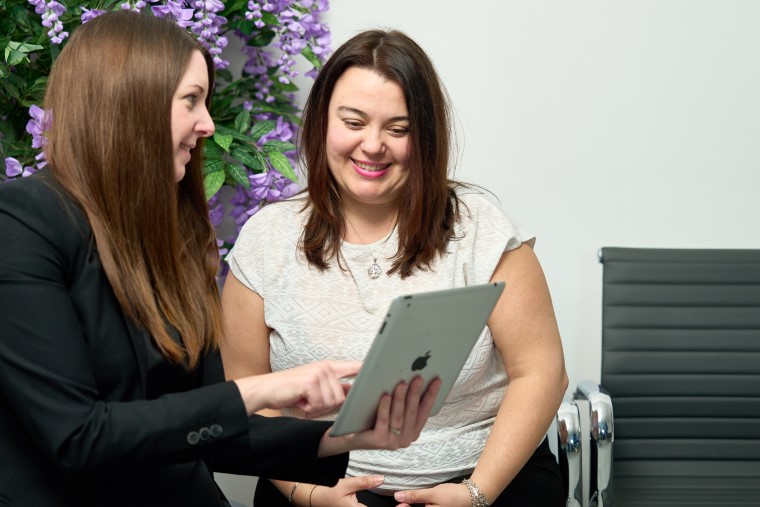- February 12, 2024
- Mr Mrinal Supriya
Last updated on September 9, 2024
Rhinoplasty, commonly known as a nose job, is a surgical procedure aimed at enhancing the appearance and functionality of the nose. While the decision to undergo rhinoplasty is significant, it’s natural for patients to have questions and concerns about the recovery process. This blog post will address the top five post-operative questions about rhinoplasty, providing insight and guidance to help patients navigate their journey to optimal results.
Table of Contents
Toggle1. Is Rhinoplasty Painful?
Pain tolerance varies among individuals, but most of our patients at British Face Clinic comment that they are surprised about how little pain they feel in the recovery process. During the initial days after surgery, you may feel tightness, pressure, or soreness around the nose and nasal area. However, any discomfort is manageable with over-the-counter pain relievers (which we will give you on discharge from the hospital). As the healing process progresses, any lingering discomfort typically diminishes, and patients can resume their normal activities. Breathing may feel similar to when you have a cold for the first 24 to 48 hours, but we provide a nasal spray that can be used to help with any congestion.
2. How Long Before I Can Return to Work After Rhinoplasty?
The timeline for returning to work after rhinoplasty depends on the individual’s job requirements and the extent of the procedure. Our patients normally return to work after their splint is removed on day 10 following surgery. During this time, it’s essential to follow post-operative care instructions provided by your surgeon, including avoiding strenuous activities and minimising physical exertion. If your job involves physical activity, heavy lifting or strenuous movements, you may want to take a full two weeks off to recover. It is crucial to prioritise rest and recovery for optimal healing and to ensure the best possible results.
3. How Long After Surgery Before I See the Results of Rhinoplasty?
At British Face Clinic you are likely to see almost full results when your splint is removed. However, there will be a degree of swelling that will take a few months to settle fully. Healing is very much individual and it can take some patients up to a year or more for the nose to fully settle into its new shape and for residual swelling to completely dissipate. Patience is key during the recovery process, as the final results of rhinoplasty are well worth the wait.
4. Can I Wear Glasses After Rhinoplasty?
Wearing glasses can be a concern for patients undergoing rhinoplasty. We do not advise wearing glasses or sunglasses for around 4 weeks after surgery. If you rely on glasses then we recommend using contact lenses during the first 4 weeks to avoid any pressure on the nasal bridge during initial recovery.
5. When Can I Return to Sports After Rhinoplasty?
Engaging in physical activities and sports after rhinoplasty requires careful consideration to avoid compromising the surgical outcome or causing injury to the nose. While every patient’s recovery timeline is unique, it’s generally advisable to refrain from participating in contact sports or activities that involve a risk of nasal trauma for at least six to eight weeks post-surgery. During this time, the nasal tissues are still healing and may be more vulnerable to injury.
While rhinoplasty involves a period of healing and adjustment, the ultimate outcome is a nose that enhances facial harmony and boosts confidence. By following post-operative instructions, prioritising rest and recovery, and keeping in touch with us for any concerns, you can confidently navigate your rhinoplasty journey and achieve the best possible results.
If you would like to book a consultation with British Face Clinic please call us today on 07590817036. We have appointments available in Harley Street, London, Northampton and Milton Keynes.

About The Author
Mr Mrinal Supriya
Mr Mrinal Supriya is the Divisional Director of Surgery. He is highly experienced Head and Neck Surgeon, specialising in facial cosmetic surgery. He is the clinical director for head and neck service in Northamptonshire and works as an ENT Consultant. He is the lead head and neck robotic surgeon at the University hospital of Northamptonshire (2023). Previously, he held the post of ENT, Head and Neck consultant at St.George’s University Hospital, London and at Ninewells University Hospital, Dundee.
Categories
Categories
- About British Face Clinic (5)
- Blepharoplasty (5)
- Buccal Fat (1)
- Deep Plane Facelift (14)
- Facelift (4)
- Neck Lift (1)
- Non-Surgical (3)
- Otoplasty (4)
- Rhinoplasty (15)



